For those that suffer from Stomach Acid Issues you possibly may have heard of both these names before. Some people think these are the same thing, but, no, they are NOT. Although they are similar, these conditions have different names for good reason
So, let’s take a look at this – What is the Difference Between Achlorhydria and Hypochlorhydria?
Now, maybe you already know what Hypochlohydria is (it’s low stomach acid if you don’t) and perhaps EVEN you will know what Hyperchlorhydria is (too much stomach acid). But do you know what Achlorhydria is?
I had never heard of this 3rd condition before until recently but what this is – is when your stomach doesn’t produce ANY hydrochloric acid at all. The A is for Absent!
So, In contrast, Hypochlorhydria refers basically to having low stomach acid but still having more than you would if you had a diagnosis of Achlorhydria. The difference is that although these are both low stomach acid conditions one (Achlorhydria) is a more severe form than the other.
I will get back to this soon but whilst we are serving this introduction. For those that don’t know about Stomach Acid – it is a good thing to learn about in regards to healthy living. Stomach Acid (otherwise known as HCL) is Important for a number of reasons related to digestion and other things.
For our digestive system to function properly we need Stomach Acid (HCL) to both absorb Important nutrients and to keep harmful pathogens at bay.
I will certainly discuss this more throughout this blog post but mostly what I will be focusing on today is this main question in the title…
What is the Difference Between Achlorhydria and Hypochlorhydria?
Now, the absence or reduction of stomach acid isn’t just an interesting topic for med students; The consequences this can have on our well-being are quite monumental. Without adequate stomach acid this can lead to vitamin deficiencies, digestive troubles, and even increased susceptibility to infection.
It is really quite plain and simple – we need the right balance of acidity in our stomachs – full stop!
Exactly why In this article, I’m going to share with you about the underlying causes, symptoms, and potential treatments for Achlorhydria and Hypochlorhydria, and how to know if you have either of the two.
Both conditions need to be on our radar if we start to face digestive discomfort because neither is good for our health. Too much Stomach Acid (Hyperchlorhydria) can be pretty bad too but this is even more so very important to diagnose and treat. Exactly what on this website we are very committed towards helping with.
So let’s continue now shall we? We shall first look at>>>
What Are The Mechanisms of Stomach Acid Production
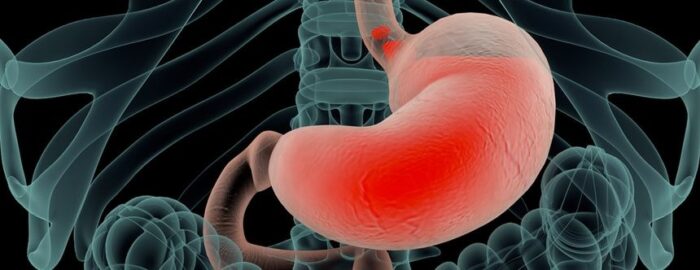
For anyone serious about health, and the effects of digestion, understanding the intricacies of how your stomach generates acid is crucial when differentiating between Achlorhydria and Hypochlorhydria.
For this purpose I’m going to break down the basics so you’re well-grounded on the subject. To do this I think it is very important to first address this…
What Happens Inside of Our Stomachs?
The stomach organ is like a finely tuned chemical factory, relying on precise mechanisms to produce hydrochloric acid (HCl). This acid is essential for breaking down food, absorbing nutrients, and defending against harmful microbes.
There are a few different things to try and understand here – these Include:
- Signal Initiation
The process begins even before food enters your stomach. When you smell, taste, or think about food, your brain sends signals to your stomach via the vagus nerve. This activates the production of gastrin, a hormone that plays a key role in stimulating stomach acid production. - Gastrin’s Role
Gastrin is released into the bloodstream by G cells located in the stomach lining. It travels through your blood and binds to receptors on parietal cells, specialized cells in your stomach lining responsible for acid secretion. - Activation of Parietal Cells
Parietal cells contain proton pumps (H+/K+ ATPase), which are responsible for pumping hydrogen ions (H+) into the stomach. These ions combine with chloride ions (Cl-) to form hydrochloric acid. The chloride ions are transported into the stomach lumen by a separate mechanism, ensuring a steady supply for HCl production. - Regulation of Acid Secretion
Acid production is tightly regulated by a balance of stimulatory and inhibitory factors. While gastrin and histamine enhance acid secretion, somatostatin, another hormone, acts as a brake when acid levels become too high. This dynamic ensures the acidity remains within an optimal range for digestion. - The Final Product: Hydrochloric Acid
Once produced, HCl plays several roles:- It creates a highly acidic environment, helping denature proteins and activate pepsin, an enzyme crucial for protein digestion.
- It acts as a first line of defence against pathogens.
- It facilitates the absorption of key nutrients like iron and calcium.
This intricate process highlights the complexity of your digestive system. When something goes wrong in this chain, it can lead to conditions like hypochlorhydria (low stomach acid) or achlorhydria (no stomach acid), both of which can have significant health impacts.
When Parietal Cells Do Not Work
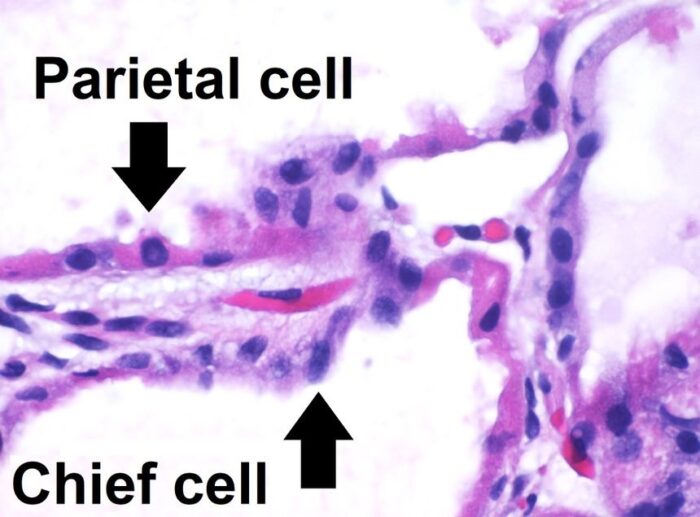
Now, this really the key to everything. If these Parietal cells EITHER DON’T produce enough acid or produce none at all, it leads to Hypochlorhydria and in the worst case scenario Achlorhydria, respectively.
And that’s where the difference lies between the two conditions.
The fact that proper acid levels are necessary for breaking down food, especially protein, AND as well that stomach acid acts as the first line of defence against pathogens having inactive Parietal cells is bad.
Both are pivotal processes for digestion and the immune system, and actually not just this – nutrient absorption is something else that should not be ignored.
You see, stomach acid activates digestive enzymes and helps absorb certain minerals like zinc, iron, and calcium.
A reduction in acid levels can therefore interfere with the nutrient absorption process.
There’s a lot of opportunity in this knowledge. Understanding the importance of stomach acid sheds light on why disturbances in its production can have a significant impact on overall health.
How To Make Sure Our Parietal Cells Stay Active?
So, I think this is a good point to throw in here real quick. After all, this is the root cause of both low stomach acid conditions. Maintaining the health and function of your parietal cells is essential for proper digestion and nutrient absorption. Many will NOT even give this a second thought but here are just a few strategies to ensure these vital cells remain active and effective:
1. Consume a Nutrient-Dense Diet
- Zinc: This mineral is crucial for the functioning of enzymes involved in stomach acid production. Foods like pumpkin seeds, shellfish, and whole grains are excellent sources.
- Vitamin B12: Parietal cells play a role in absorbing B12 by producing intrinsic factor. Include foods like eggs, fish, and fortified cereals to maintain healthy levels.
- Magnesium: Supports the proton pump mechanism in parietal cells. Found in nuts, spinach, and avocados.
2. Manage Stress Levels
Chronic stress can impair the nervous system’s communication with the digestive system, reducing acid production. Practice stress-management techniques like mindfulness, yoga, or deep-breathing exercises to support optimal gastric function.
3. Chew Your Food Thoroughly
Chewing signals the brain to prepare the stomach for digestion, boosting gastrin production and, consequently, parietal cell activity. Take your time to chew each bite properly.
4. Stay Hydrated—but Time It Right
Adequate hydration supports overall cellular health, including parietal cells. However, avoid drinking excessive amounts of water during meals, as this can dilute stomach acid and disrupt digestion.
5. Incorporate Bitter Foods
Bitter foods like dandelion greens, arugula, and ginger stimulate digestive secretions, including gastric acid. Adding these to your diet can encourage parietal cell activity.
6. Avoid Overuse of Antacids and PPIs
Over-the-counter antacids and proton pump inhibitors (PPIs) can suppress stomach acid production when used long-term, potentially leading to hypochlorhydria. Use these medications only when prescribed and explore alternative remedies for occasional heartburn.
7. Support Gut Microbiota
A healthy gut microbiome can indirectly support gastric health. Probiotic-rich foods like yogurt, kefir, and sauerkraut help maintain balance, reducing inflammation that could impair parietal cell function.
8. Address Underlying Health Issues
Conditions like Helicobacter pylori infection or autoimmune disorders can damage parietal cells over time. Regular check-ups and appropriate treatment are essential for protecting their function.
By adopting these habits, you can ensure your parietal cells stay active, supporting your digestive health and overall well-being.
Perhaps, this might be enough to know about if you want to actually avoid these low stomach acid problems but further to this let’s get back to the main question in the the title What Is The Difference Between Achlorhydria and Hypochlorhydria?
We shall continue with the more condition of the the two>>
Achlorhydria: The Absence of Stomach Acid
Now what exactly is Achlorhydria? I have answered this already but just to clarify – Achlorhydria is when our stomachs supply of Hydrochloric acid (HCL) is completely GONE, and as HCL is such a crucial component of the gastric juice that helps digest food, protect against sickness and absorb nutrients this is very bad.
So you might be wonder, how do you know if you have Achlorhydria really, and not something else?
It should be noted that symptoms can vary, and some of us will mistakenly shrug these off as routine digestive discomforts, but of course knowing if you have Achlorhydria is very Important.
Common signs to watch for include Bloating, Chronic Indigestion, and and as a result poor absorption of vitamins and minerals, such as;
- Vitamin B12,
- Iron, and
- Calcium.
Exactly why If you’re suspecting you might have Achlorhydria, you should know the next steps involve visiting a healthcare provider for appropriate tests to determine what is actually going on.
Typically, doctors may perform a gastric pH test to measure acidity levels in the stomach.
Low or absent levels can confirm the diagnosis of Achlorhydria.
But it’s not just about identifying the condition; understanding the ‘why’ behind it’s important too.
What Are The Causes of Achlorhydria?
Causes can range from autoimmune disorders, where the body’s immune system attacks its own cells, to chronic use of acid-reducing medications.
Even certain surgical procedures on the stomach can lead to Achlorhydria, and this is not all. If you get Achlorhydria this can invite unwelcome complications like bacterial overgrowth in the stomach or intestines due to the absence of acid’s protective barrier.
This can lead to recurring infections and digestive turmoil.
Additionally, insufficient stomach acid severely impacts the digestion and absorption of vital nutrients, paving the way for potential nutritional deficiencies and their associated health issues over time.
However, to a lesser degree its Important to understand about Hypochlorhydria too, where the stomach still produces some acid, but not quite enough.
The challenges are similar, but as you’ll see, there’s a spectrum when it comes to these conditions. Now…
What Is Hypochlorhydria
On the other hand Hypochlorhydria is a condition characterized by reduced levels of stomach acid. It’s better to have this then Achlorhydria of course because some is better than none but still Hypochlorhydria itself can be pretty menacing and lead to MANY notable digestive problems.
So, you might be experiencing Hypochlorhydria if you’re dealing with symptoms such as;
- Bloating,
- Gas,
- Upset Stomach, and
- Nutrient Deficiencies.
These are clues that your stomach isn’t producing enough acid to properly break down food and absorb nutrients.
In my opinion, the difference between Hypochlorhydria and Achlorhydria lies in their severity and underlying causes.
Hypochlorhydria is often seen as the preliminary stage that could, in time, progress to Achlorhydria if left unaddressed.
A variety of factors can reduce stomach acid levels. These include;
- Getting older (aging),
- Prolonged and Chronic Stress,
- Excessive Use of Antacids,
- and other certain medications such as PPIs.
If you want to prevent it, paying attention to these aspects is crucial.
The Consequences of Reduced Stomach Acidity
Reduced stomach acidity might not sound like a big deal, but it’s a part of a domino effect. Without sufficient acid, not only is digestion compromised, but also the absorption of vital nutrients like Vitamin B12, Iron, and Calcium.
This can lead to more significant health issues if not managed well.
The long-term effects of Hypochlorhydria shouldn’t be taken lightly. Over time, insufficient stomach acid can increase your risk of infections, as the acid barrier to pathogens is weakened, and contribute to the development of chronic digestive disorders, and a whole host of negative health conditions.
Managing Achlorhydria and Hypochlorhydria
If you’re facing a diagnosis of Achlorhydria or Hypochlorhydria, you might be feeling overwhelmed, but it’s important to know that there are effective ways to manage these conditions.
For starters, medical treatments can include the use of supplemental hydrochloric acid to aid digestion or proton pump inhibitors and H2 blockers, particularly in cases where acid reflux is an issue due to prolonged hypochlorhydria.
(*Note I do NOT recommend Proton Pump Inhibitors or H2 Blockers but this is just me)
The best advice is to always consult with your healthcare provider to develop a plan that’s tailored to your needs.
Whether you trust the doctors or not it is always good to get there opinion. Likely they will say about…
Focusing On a Healthy Diet
Adjusting what you eat can be transformative to your overall digestive health function. You may find relief from symptoms by incorporating easily digestible foods and steering clear of those that can increase gastric irritation, such as overly spicy or processed items.
Probiotics and certain nutritional supplements might be beneficial. It’s possible that improving your gut flora and addressing any nutrient deficiencies can help in managing symptoms.
Don’t shy away from discussing these options with a dietitian.
Make Sure To Keep Working Towards Getting Better
Consistency with medical check-ups is crucial, as these conditions can lead to complications if not monitored. Your doctor can keep an eye on your stomach health and adjust your treatment as necessary.
Remember, education is power.
Understanding your condition helps you make informed decisions about your health, and your healthcare team is a valuable resource in this journey.
So something to think about now so here is something else Interesting>>>
Does Achlorhydria Completely Stop Digestion
I thought this would be good to add in here. For anyone curious – SO Achlorhydria is a condition where there’s an absence of HCL in the stomach. HCL plays a crucial role in breaking down food and killing bacteria in the stomach, although it’s not the only component of digestion.
Other digestive enzymes, such as pepsin, are also needed for breaking down proteins. For this reason, it should be noted that while Achlorhydria can impair the digestion process, it doesn’t completely stop it from happening. To some degree digestion will be happening.
However, with this being said Achlorhydria can lead to various digestive issues and nutrient deficiencies – because the absence of stomach acid affects the breakdown and absorption of certain nutrients, especially proteins and minerals like Iron and Calcium.
Prevention and Awareness of Low Stomach Acid
On a final note, I’m going to wrap up our discussion on Achlorhydria and Hypochlorhydria by emphasizing the power of prevention and awareness. By understanding the signals our body sends us is critical in maintaining not just our digestive health, but our overall well-being.
So, it is Important to choose something that resonates with our own preferences when it comes to managing our digestive health.
In Conclusion
Whether it’s incorporating a balanced diet, staying hydrated, or managing stress, remember that these seemingly small choices can make a big difference in the short term and also the long run.
Regular check-ups with a healthcare provider too are a crucial part of catching potential issues early. So don’t hesitate to reach out to a professional if you notice symptoms that could suggest a problem with stomach acid levels.
If you suspect you’re experiencing symptoms of either Achlorhydria or Hypochlorhydria, you must do something about it. A proactive approach can help you take control of your health and ensure your digestive system is functioning at its best.
Being informed and vigilant about your health is always the best strategy. I hope the knowledge about these two conditions has been helpful for you.
I am going to finish this article up here but if you would like to read more similar content (Check Out Our Page HERE)
References
For further reading here are some reliable references you can use find out more about the differences between achlorhydria and hypochlorhydria:
- Comparison of Achlorhydria and Hypochlorhydria
A clear distinction between these two conditions: achlorhydria is a complete lack of stomach acid, while hypochlorhydria is a reduction in acid levels. Both can lead to digestive complications, but the causes differ. Achlorhydria often stems from autoimmune conditions like pernicious anemia or chronic gastritis, while hypochlorhydria can be linked to stress, aging, or H. pylori infection. Treatments focus on addressing the underlying causes and may include dietary adjustments, supplements, or medications.
Source: This vs. That【12】. - Medical Insights on Stomach Acid Conditions
This source outlines how these conditions are diagnosed and managed. Achlorhydria and hypochlorhydria both impair digestion but vary in severity. Diagnosis may involve endoscopy or blood tests, and treatments can include hydrochloric acid supplements or addressing infections like H. pylori.
Source: Nutrients Review【11】. - Functional Hypochlorhydria in Clinical Context
This article discusses hypochlorhydria in depth, particularly how it may result from proton pump inhibitor overuse or aging. It also explores treatment approaches like betaine HCl supplementation to restore stomach acidity. This reference is valuable for its discussion on clinical applications and diagnostics.
Source: PubMed Central【10】. - Cleveland Clinic: Hypochlorhydria Overview
- This source provides a detailed explanation of hypochlorhydria, including its causes, symptoms, and diagnostic methods. The text outlines how chronic use of acid-reducing medications, infections like H. pylori, or aging can lead to low stomach acid levels and describes diagnostic tools such as the Heidelberg pH test and baking soda tests.
- Source: Cleveland Clinic【18】.
- Verywell Health: Achlorhydria Causes and Treatments
A thorough guide on achlorhydria, focusing on its causes, including autoimmune gastritis, chronic use of proton pump inhibitors (PPIs), or surgical procedures. It also discusses potential complications, such as nutritional deficiencies, and highlights treatments like addressing underlying conditions or supplementing key nutrients like vitamin B12 and iron.
Source: Verywell Health【19】. - Healthline: Differences Between Achlorhydria and Hypochlorhydria
This resource discusses both conditions in detail, emphasizing the potential nutritional and health risks associated with low or absent stomach acid. It provides insight into symptoms, such as indigestion and malabsorption, and explores management strategies, including dietary changes and medications.
Source: Healthline【18】【19】. - BMJ Best Practice: Medical Context on Achlorhydria
This clinical resource examines achlorhydria’s association with conditions like gastric atrophy and its frequent occurrence in older adults. It also discusses diagnostic and treatment options, making it a reliable reference for a medically inclined audience.
Source: BMJ Best Practice【18】.
These references provide a foundation for understanding the differences, causes, symptoms, and management of these conditions. Let me know if you need help with citing these sources or crafting specific parts of your post!
FAQ About Achlorhydria and Hypochlorhydria
What vitamin deficiency causes achlorhydria?
Achlorhydria may be associated with vitamin B-12 deficiency in the setting of pernicious anaemia. Parenteral vitamin B-12 may be important in selected patients.
What is hypochlorhydria acidosis?
This is just the longer name for Hypochlorhydria (low stomach acid).
How to test for achlorhydria?
Whilst not all patients with suspected achlorhydria need documentary evidence of a lack of acid production, the most important study to prove the presence of the condition is measurement of basal acid secretion. For practical purposes, gastric pH at endoscopy should be done in patients with suspected achlorhydria.
How to treat achlorhydria?
Achlorhydria associated with H pylori infection may respond to H pylori eradication therapy, although resumption of gastric acid secretion may only be partial. The standard, first-line therapy for gastric H pylori is as follows: PPI (20 mg bid) plus clarithromycin (500 mg bid) plus amoxicillin.
How To Treat Achlorhydria Without Medication?
Achlorhydria is a condition where the stomach produces little or no hydrochloric acid (HCl), which is crucial for digestion. While medical treatment is often required, there are some lifestyle and dietary changes you can consider to help manage the condition naturally:
1. Enzyme Supplements: Take digestive enzyme supplements with meals to aid digestion in the absence of stomach acid. Look for products that include protease, amylase, and lipase.
2. Raw Foods: Eating raw fruits and vegetables can help provide natural enzymes that support digestion.
3. Apple Cider Vinegar:
Apple cider vinegar is sometimes used as a natural remedy to increase stomach acidity. A tablespoon diluted in water before meals may help boost the digestive process.
4. Lemon Water:
Lemon water can stimulate stomach acid production. Drinking a glass of warm water with the juice of half a lemon before meals can be beneficial.
5. Chewing Food Thoroughly:
Properly chewing food breaks it down before it reaches the stomach, reducing the burden on your digestive system and helping your body absorb nutrients more effectively.
6. Increase Zinc Intake:
Zinc is essential for stomach acid production. Foods high in zinc, such as pumpkin seeds, shellfish, and legumes, may help promote healthier stomach acid levels.
7. Probiotics:
Probiotic-rich foods, like yogurt, kefir, sauerkraut, and kimchi, can help balance gut bacteria, which is important for overall digestive health.
8. Avoid Processed Foods:
Minimize consumption of processed, fried, and sugary foods, as they can irritate the digestive system and worsen symptoms of achlorhydria.
9. Smaller, More Frequent Meals:
Eating smaller, more frequent meals can ease digestion and prevent overloading the stomach.
10. Manage Stress:
Chronic stress can reduce stomach acid production. Practices like yoga, meditation, deep breathing, and regular exercise can help manage stress and improve digestion.
11. Herbal Remedies:
Certain herbs, such as ginger and peppermint, can support digestion. Ginger can stimulate gastric secretions, while peppermint may help soothe the digestive tract.
While these strategies can support digestion and alleviate some symptoms, it’s important to consult a healthcare provider to manage achlorhydria, as long-term consequences like nutrient deficiencies can occur.
Is ginger good for low stomach acid?
Ginger possesses anti-inflammatory properties that may help alleviate stomach inflammation due to low stomach acid. People commonly use ginger as a natural remedy for nausea, stomach pain, and indigestion
What is the most common cause of achlorhydria?
Achlorhydria indicates the inability to produce gastric acid. This is most commonly caused by gastric atrophy. Gastric atrophy, with or without autoimmune gastritis, is present in about 15% of older people and is thought to be initiated by infection with Helicobacter pylori
Can H pylori cause achlorhydria?
Cytokine release from H. Pylori bacteria can affect ECL cells by impairing their secretory function and lead to achlorhydria and subsequently gastric cancer via ECL hyperplasia by increased gastrin stimulation.
Can you live with achlorhydria?
Stomach acid (hcl) breaks down our food and activates digestive enzymes that dissolve proteins and other nutrients. It also helps kill bacteria, viruses, and parasites in the stomach, protecting you from infection and disease. Left untreated, achlorhydria and hypochlorhydria can have life-threatening consequences.

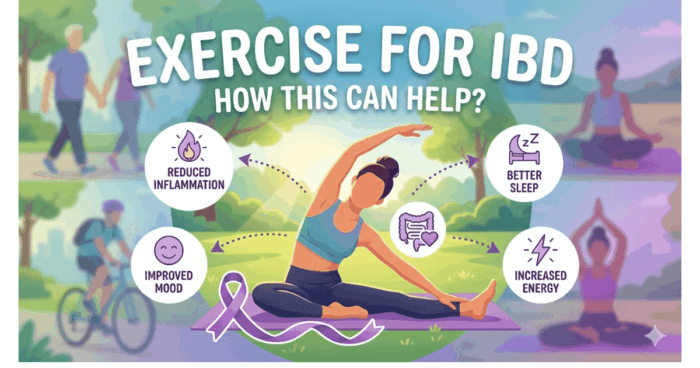


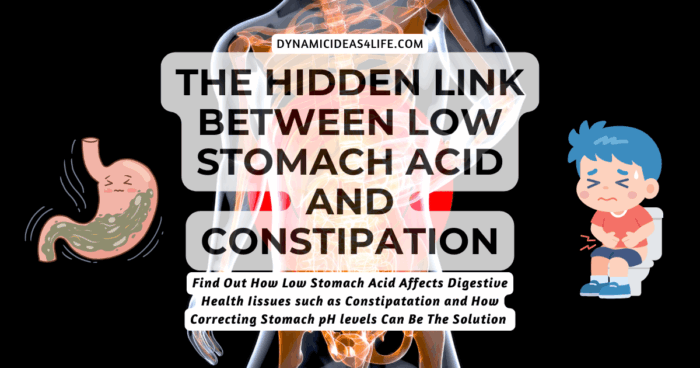

Anxiety and Depression best ways to lower blood sugar BiOptimizers blood pressure supplements blood sugar support supplements Digestive Enzymes Supplement digital products Dr Sam Robbins Exercise Gut Health Healthy Living heart health HFL how to lower blood sugar levels How To Lower Cholesterol insulin resistance joint health supplement Keto keto dieting Keto Diet Weight Loss leaky gut supplements leptin resistance list Magnesium deficiency Matt Gallant mental health Mind and Mood Probiotics multivitamins Nootropics nutrient supplements Probiotics Probiotic Supplements proteolytic enzymes reverse type 2 diabetes stress and anxiety stress relief vitabalance vitamin c vitapost Wade Lightheart weight loss articles weight loss diet plans weight loss product reviews weight loss supplements weight loss tea

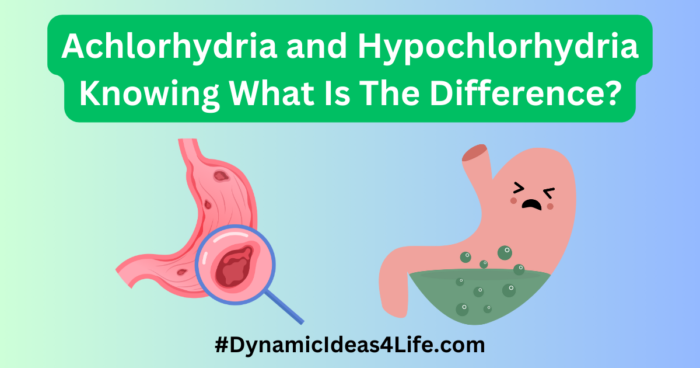



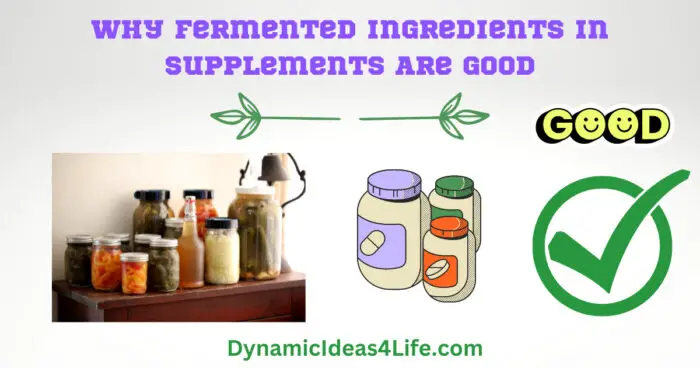


Your site loads up incredibly fast, and the content is top-notch. You’ve done a fantastic job, and I appreciate your efforts.
Thank you glad you like.
Hi i think that i saw you visited my web site thus i came to Return the favore I am attempting to find things to improve my web siteI suppose its ok to use some of your ideas
Yes I guess you could. Hope this helps.